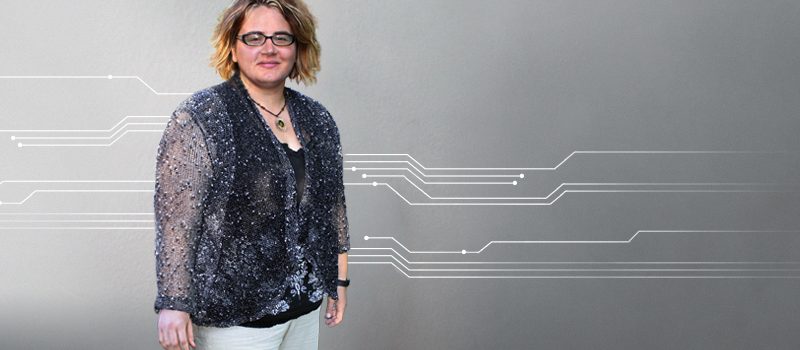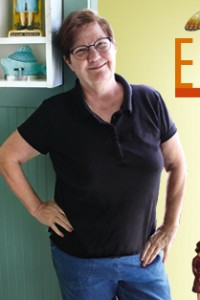Kameron Hurley: So You Still Have A Day Job….
 Welcome to the club. I’ve been writing and publishing novels for seven years now. I also have a robust Patreon following where I produce short fiction for members paying a monthly fee, and I am always hustling to re-sell projects, whether that’s short stories or foreign and film rights on novels. I still pick up the occasional freelance project and magazine column, because I still have a student loan and the drugs that keep me alive are expensive.
Welcome to the club. I’ve been writing and publishing novels for seven years now. I also have a robust Patreon following where I produce short fiction for members paying a monthly fee, and I am always hustling to re-sell projects, whether that’s short stories or foreign and film rights on novels. I still pick up the occasional freelance project and magazine column, because I still have a student loan and the drugs that keep me alive are expensive.
But all of this isn’t enough to ensure security for me and my family in this day and age. A “good” year can result in $50,000 in royalties and Patreon payments. A bad year? Significantly less. The days where you wrote a short story on Monday and cashed the check on Sunday and used it to pay rent the next Monday are long gone. They’ve been long gone since at least the late 1980s.
I live in the United States, which also has the unique peculiarity among most western countries in that health insurance and health-care costs are increasingly unaffordable outside of an employer-sponsored plan (and even then, I’m out over $11,000 a year just in health costs). This means that no matter what I’m bringing in with novels and short fiction, I’m tied to a day job for the foreseeable future (outside of, say, immigration to Canada, which is a long process). I’m certainly not unique in having a full-time day job at this stage in my career. However, I’ve noticed that many writers feel that talking about having a full-time job outside of writing, or a spouse with a full-time job who supports them, is taboo. Somehow unseemly. Rude.
We live in capitalism. I live in a country where the breach between rich and poor is ever-widening. Jobs with pensions are unicorns. Job security is a joke. Raises? If you want a significant increase in pay, common wisdom is it’s easier to switch jobs and ask for more money from a new employer than to get a real raise at your current one. Job turnover and layoffs are endemic.
It’s an uncertain time in America, and the world at large. Perhaps it’s always been thus, and it’s simply that the stability and prosperity tied to hard work that I was promised as a young white woman was simply a lie. This is more likely.
The myth of the secure job, the rent paid in monthly short stories sales, needs to get binned in favor of new expectations and hopes for the future of work and our writing profession. So often we find ourselves longing for the “good old days,” or simply the days we felt were promised to us by those who came before. We refuse to allow ourselves to acknowledge the current ways that writers are making a living writing. We figure we’re just somehow doing the writing thing wrong.
Many of us have freelance copywriting jobs, or advertising and marketing gigs like mine, where we are writing web-page copy and spam emails and the junk mail that comes to your door. We write magazine ads, and technical articles, and “five things” blog posts and columns like this one. Most of us understand that we can’t rely on a single source for our income – not a single publisher or a single corporate entity like Amazon to distribute our self-published titles.
The most consistently financially stable authors I know have some combination of self-published work, Kickstarter projects and Patreon subscription sites, freelancing clients, part-time or full-time day jobs, and magazine articles and columns that they pitch (and partners with day jobs and health insurance!). There’s money to be made out here: the world right now is run on content, and someone has to be there to write those scripts, generate those posts, and craft those stories. Someone has to write the press releases. The spam email. The video game dialogue. The resumes. The social media feeds.
Might as well be you.
Yet I continue to see new writers, other creatives, and outsiders refer to some mythical “pure” creative drive or energy that comes from being a starving artist. As if it’s the act of desperation that will inevitably be what makes you great (because never doubt that these are the same people who believe that your sacrifice and “genius” will be financially rewarded so you never have to struggle again). I have lived in a shitty, cockroach-infested flat in Durban, South Africa for $150 a month, smoking cigarettes and drinking cheap wine and wondering when I’d run out of money for peri-peri rice while I banged away at a novel that never sold, and let me tell you – I much prefer the financial stability and relatively better health of day job, novel income, Patreon dollars, and freelancing gigs. It keeps me focused on the work itself instead of where I’m going to scrape together enough for prescription drugs (though I admit I still have some bad months with that, too. We are, none of us, free). I’ve also created a short story a month for the last 18 months, and had a novel a year published. It certainly hasn’t hurt my productivity to live with a day job.
Do I wish for a full-time creative life? Of course. All of us who work the “new normal” of the gig economy wish we could feel financially stable hustling less and enjoying life more. I’d certainly sleep better at night. I’d stress less. I don’t like our current reality, but I do have to operate within it.
While acknowledging this reality, we still shouldn’t be satisfied with the scraps we are given. When people tell me, “You should feel lucky to have the career you do,” I can say, “Well, sure, I’m very happy to have what I do.” But let’s make no mistake. “You should feel lucky” is often something that a boss says to an employee about being employed. It often justifies inequalities and abuses. It covers up the fact that while there is a large component of luck in everything, our careers could be vastly improved by minimum rates, writing and freelancing associations that offer us affordable health insurance, and a government that spends our pool of tax dollars on schools and social services that can both educate the next generation and care for the current aging one (many of whom, like my own parents, will reach retirement age with no financial means to retire or care for themselves if they become ill). Unless something changes, funds allocated to our own social security in America will be running out before 2030 – long before I ever see them. Paying taxes should go toward caring for the young and the most vulnerable, and improving public services. Instead, we find ourselves writing blog posts for $10 an hour and getting told we should feel lucky to have any sort of work at all.
We aren’t lucky to have the work.
The guys with the money know that it’s certainly not luck that enables them to exploit their workers with petty wages, cheat them out of overtime, and eliminate pensions and benefits to serve the greedy, ever-growing appetites of stakeholders. It’s not luck but the manipulation of our society, of our governments, and of our expectations, to ensure we feel lucky with less and less, while they squeeze us for more and more.
We hustle not because it’s glorious, or romantic, or because it creates better work. There are few things less romantic than showing up in the ICU with a chronic illness because you couldn’t afford to go in for preventative care. Misery, gig work, and the constant grind don’t make us better creatives. All it means is we aren’t going to live as long as the great writers we are currently losing.
So while I’ll tell you: don’t be ashamed or sad to have that day job, or that gig, or a roof over your head, I’m not going to sit here and tell you you’re lucky, either. We should remain deeply unsatisfied with the current state of work, of creative compensation, and of the erosion of our rights. Survival requires we hustle – but let’s not put on a jaunty hat and pretend that’s the romantic order of things.
Demand more. Demand better.
We deserve it. Luck be damned.
This feature and more like it in the August 2018 issue of Locus.
 While you are here, please take a moment to support Locus with a one-time or recurring donation. We rely on reader donations to keep the magazine and site going, and would like to keep the site paywall free, but WE NEED YOUR FINANCIAL SUPPORT to continue quality coverage of the science fiction and fantasy field.
While you are here, please take a moment to support Locus with a one-time or recurring donation. We rely on reader donations to keep the magazine and site going, and would like to keep the site paywall free, but WE NEED YOUR FINANCIAL SUPPORT to continue quality coverage of the science fiction and fantasy field.









The average pro writer makes $10,000 per year. If you made $50,000 you’re doing as well as five pro writers put together. If you ever hit it big, you could sell you’re old shoes for maybe $10,000 just like Bill Clinton. Just recently Clinton and James Patterson wrote a novel. Since they didn’t use typewriters they have to sell something. So don’t throw your shoes away. They might be worth a lot.
Yes! It is so great to see someone else has figured out the “you should feel lucky” bullshit. I also feel this way about “gratitude journals” and people who tell you not to complain about your problems because, “There are starving kids in Africa,” or some other variation on “someone somewhere has it worse.” That may be true, and we should also care about those problems, but it doesn’t make your problems or my problems invalid. That’s like saying, “Your honor, I know I robbed that bank, but you shouldn’t care about that when there are murderers in the world!” The day THAT works as a legal defense is the day I’ll let someone else tell me what I do and don’t have the right to complain about.
I think the whole “be grateful for what you have” nonsense is yet another thing that started to discourage the poor from stealing from the rich.